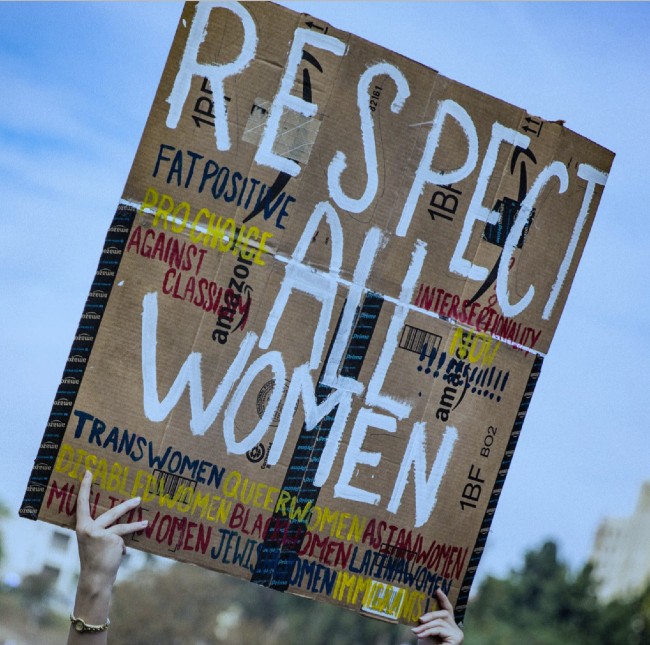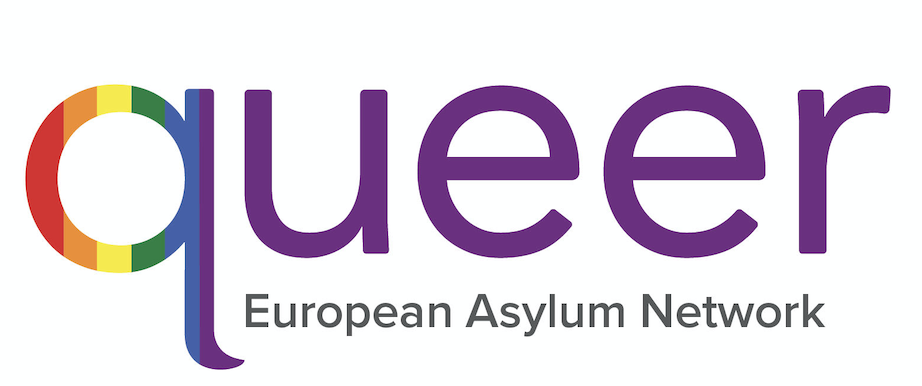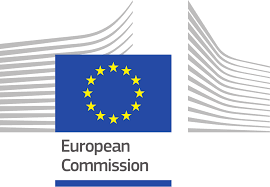The Istanbul Convention and Queer Women Seeking Asylum

Lesbian, bisexual, queer, trans and intersex (LBTQI) women who are migrants, asylum claimants and refugees are particularly vulnerable to sexual and physical violence in their country of origin, during their journey to the reception country, during the asylum decision-making process and after having obtained refugee or humanitarian status within the European Union. This includes rape and sexual violence in refugee camps, reception centres and whilst in transit, so-called “honor” crimes, exploitation in sex work by traffickers and harassment by immigration officials and society at large.
This policy report summarises the conversations held at an online conference on “The Recognition of Violence Against Lesbian, Bisexual, Inter and Trans People within the Common European Asylum System” organised by the Queer European Asylum Network on 13. November 2020. The conference facilitated a conversation on the scope of the Istanbul Convention for the protection of lesbian, bisexual, queer, intersex and trans women from gender-based and sexual violence in the asylum context between representatives of the Council of Europe, the European Parliament, ILGA-Europe, German Federal Family Affairs, Senior Citizens, Women and Youth (BMFSJF), Transgender Europe (TGEU) and the lesbian-focused NGO LeTRa in Munich.
This policy report identifies the need for all EU State Parties who have ratified and/or signed the IC (as well as the EU states who have not yet ratified and/or signed the IC) to adequately protect lesbian, bi, queer, intersex and trans women from gender-based violence under the Convention. The report further calls on local governments to abide to the IC when working with LBTQI women seeking asylum. Finally, this report highlights that gay, queer, intersex and trans persons identifying as male – although not directly protected by the IC – should be recognized as a group that is experiencing a high level of exclusion and discrimination in asylum policy and practice.
The Istanbul Convention and Asylum
• The Istanbul Convention (IC) of 2011 is widely recognized as the most far-reaching legally binding human rights instrument to prevent and combat gender-based violence and domestic violence and requires states to act. The IC requires State Parties to ensure that the grounds for asylum listed in the 1951 Refugee Convention are interpreted in a gender-sensitive manner.
• Article 60 provides that 1) gender-based violence against women is recognized as a form of persecution and serious harm and 2) requires gender-sensitive interpretation to each of the convention grounds. The Istanbul Convention further mandates State Parties to 3) provide gender sensitive reception procedures and report guidelines as well as gender-sensitive status-determination procedures.
• Article 61 of the IC requires states to respect the international law principle of non-refoulement, ensuring victims of gender-based violence not to be returned to a country where their life would be at risk.
Key findings
Lack of gender-sensitive reception and asylum procedures:
• The violence experienced by LBTQI women asylum claimants often remain invisible during the asylum process and is not accounted for in the reception procedure. There is a tendency on the part of decision-makers and immigration officials to disqualify intra-familial and communal violence such as rape in the family, beatings and mob justice as for grounds for refugee protection. The fact that sexual orientation and/or gender identity exacerbates violence within families, communities, and governmental settings in their country of origin, during transit and in the reception states gets often overlooked. The ‘burden of proof’-requirement makes it difficult to validate such experiences of gender-based and sexual violence due to the lack of “hard” evidence. At the same time, some judges hold restrictive interpretations of what qualifies as gender-based persecution. Moreover, trauma, shame, stigma, ostracism and victimization (i.e. stereotyping, racism, sexism, homo-/transphobia etc.) creates fear and barriers for LBTQI asylum claimants to disclose experiences of gender-based and sexual violence during the asylum process.
• This indicates that Art. 60 of the IC on the recognition of gender-based violence as grounds for refugee protection and the need for a gender-sensitive interpretation and support procedures and Art.4.3 on non-discrimination are not being consistently implemented and monitored by State Parties.
Failure to implement the Non-Refoulement Principle in asylum cases lodged by queer women:
• A consequence of the failure to provide a gender and sexuality-sensitive asylum procedure risks violating the non-refoulement principle (the practice of not forcing refugees or asylum seekers to return to a country in which they are liable to be subjected to persecution) because LBTQI asylum claimants will not be able to tell their stories, be identified as survivors of gender-based and sexual violence and obtain protection. Not being able to disclose the experienced harm and/or sexuality, or disclose it late, is often seen by decision-makers and state officials as evidence of the lack of credibility. Moreover, decision-makers and state officials tend to overlook that LBTQI women hesitate to report violence experienced based on their sexual orientation and/or gender identity in their country of origin due to fear of state persecution and/or police violence. The lack of ‘hard’ evidence (i.e. police reports or release on bail documents) combined with the lack of gender-sensitive asylum procedure risk rendering their experiences of violence invisible within the asylum process which may result in deportation to countries where their life is at risk. Lastly, accelerated asylum procedures as stipulated in the New Pact on Migration and Asylum are often too quick for lesbian, bisexual, queer, intersex and trans women to disclose or document their cases.
• This indicates that Article 61 of the IC on non-refoulement and Art.4.3 on non-discrimination are not consistently implemented and monitored by State Parties.
Failure to understand the intersectionality of different vulnerabilities:
• In theory, the Istanbul Convention captures the intersectionality of experiences of both women with migration or refugee background. In practice, however, there is a lack of a robust intersectionality approach to the IC in the queer asylum context. Women are generally seen as one homogenous group and LGBTIQ persons are seen as another homogenous group. LBTQI women experience gender-based violence because they are perceived and/or present themselves as female. But they further experience violence because of their sexual orientation and/or gender identity. This includes corrective rape and forced marriages and they often become victim of human trafficking. Decision-makers and state officials’ failure to understand the intersectionality of different vulnerabilities exposes LBTQI women to high levels of prejudice and discrimination and make them vulnerable to various forms of discrimination during the asylum process including access to shelter as well as service provisions for victims of gender-based violence and domestic violence.
• This indicates that Art. 61 of the IC on non-refoulement and Art. 4.3 on non-discrimination are not consistently implemented and monitored by State Parties.
Lack of judicial overlap of the Istanbul Convention and the EU-recast Directive (2011):
• In principle, the IC is a robust legal framework which frames gender very broadly – including LBTQI persons. However, in practice, the lack of an intersectional approach results in the protection of LBTQI women being either interpreted in terms of gender (under the Istanbul Convention) or their membership in a particular social group (under the Qualification Directive 2011/95/EU-recast). The lack of judicial overlap between the IC and the EU-recast Directive (2011) means the loss of sight of the needs of the individuals who arrive at the borders and claim international protection. Moreover, the EU LGBTIQ strategy commits to the international protection in regard to LGBTIQ people but does not mention the IC because its ratification is currently a contentious issue within the EU.
• This indicates that the non-discriminatory provision in Art 4.3 as well as Article 60 and 61 of the Istanbul Convention are not consistently implemented and monitored by State Parties.
Application of the Istanbul Convention to LBTQI women claiming asylum
• Though the IC does not explicitly mention lesbian, bi, queer, intersex and trans women and the Convention references a binary understanding of gender, it does specifically mention, sex, gender, sexual orientation and gender identity as impermissible grounds for discrimination in Article 4.3.
• The IC mandates State Parties to extend the protection of and support with forms of gender-based violence to trans women and women in same-sex relationships so that all women including lesbian, bisexual, intersex and transwomen, have access to support services and the right to a life free from violence.
• Article 4 Paragraph 53 of the Explanatory Report to the IC acknowledges that “Gay, lesbian and bisexual victims of domestic violence are often excluded from support services because of their sexual orientation.”
• Article 4 Paragraph 53 of the Explanatory Report stipulates that “[C]ertain groups of individuals may also experience discrimination on the basis of their gender identity. This includes transgender or transsexual persons, cross- dressers, transvestites and other groups of persons that do not correspond to what society has established as belonging to “male” or “female” categories.”
• Article 2 Paragraph 37 of the Explanatory Report encourages Parties to apply the IC to men and children. However, the IC is not legally binding in relation to male victims of violence – minors or adults, unless a state chooses to extend protection to them. This includes gay and bisexual men. The IC remains vague on the protection of transmen.
• Neither the IC nor the Explanatory Report directly mentions the protection of intersex persons.
Policy implications
Gender and sexuality-sensitive interpretation of violence in LBTQI asylum cases:
• State Parties must ensure that decision-makers and state officials use the IC in a non-discriminatory and inclusive manner and assess gender-based and sexual violence in all asylum claims but particularly with respect to lesbian, queer, bisexual, intersex and trans women.
• Training must be provided to decision-makers, state officials and translators in order to reduce the barriers that those applying for asylum face when disclosing their sexual orientation, gender identity of experiences of violence.
• National and local governments must provide LBTQI women – and people in general – with information on legal protection frameworks relevant for the asylum procedure and opportunities for separate interviews if they arrive in groups, opportunities to raise independent needs for protection on gender-specific grounds, elaboration on gender guidelines and fundamental training of decision-making officials. Judges and decision makers in EU member states must apply an inclusive interpretation of existing national and international legislations in regard to gender-based persecution in the EU in order to ensure that lesbian, bisexual, intersex, queer and trans women who have experienced gender-based and sexual violence qualify for asylum. Gender-sensitive guidelines should cover reception, accommodation and asylum procedures – including an inclusive definition of gender-based persecution.
Failure to implement the non-refoulement principle in queer asylum cases:
• All State Parties must ensure that they consider the provisions that exist within the IC which are designed to enable women and women with multi-sectional discriminatory difficulties to tell their stories in a way that gets them listened to and understood. This is necessary so that their experiences can be determined fairly and the chances for refoulement minimized.
• Lesbian, bisexual, queer, intersex and trans women shall not be sent back to contexts where they will face violence – or even threats of violence – on the part of the family, community, or and the state. Legislators, decision makers and state officials must fulfill the provisions of the Istanbul Convention and ensure that LBTQI women who are victims of gender-based and sexual violence receive counselling in order to disclose their experience with gender-based violence and minimize the chances for refoulement.
• No accelerated asylum procedures must be consistently applied to LBTQI women and female asylum claimants.
• State Parties must ensure that legislators should look at sufficient or effective protection in practice (not theory) in order to assess whether the standards set out in the IC about the level of protection being provided in the host state can be used as a guide to establish whether or not protection available in the country of origin is effective.
Failure to understand intersectionality of different vulnerabilities:
• States must ensure that legislators and decision makers implement the provisions of the IC taking into account the complex intersections of race, sexuality, gender, sexual orientation and gender identity.
• State Parties should ensure that legislators support LBTQI women, recognizing the complexities of these intersections as well as institutional and systematic racism that hinders LBTQI women of color to be believed/credible during the asylum process through training and gender guidelines.
• State Parties should hold accountable politicians and agencies through the production of shadow and monitoring reports so as to tackle discrimination and violence against lesbian, bisexual, queer, intersex and trans women institutionally and systemically.
Lack of judicial overlap of the Istanbul Convention and the EU-recast Directive (2011):
• State Parties and the EU should ratify the IC and use its non-discriminatory provisions in the area of migration and asylum as a legal protection framework in conjunction with the Qualification Directive 2011/95/EU-recast in lesbian, bisexual, queer, intersex and trans asylum cases.
• There is a need for mainstreaming the Istanbul Convention to the policy fields of asylum and integration – for instance in the upcoming New Pact on Migration and Asylum. In this respect, the new EU LGBTIQ strategy on equality needs to include the provisions of the Istanbul Convention.
• All State Parties must work toward integrating the fight against gender-based violence into EU Law in form of a Directive against gender-based violence at the EU level which includes aspects of migration and asylum in regard to sexual orientation, gender identity and sex characteristics. The latter would be to include intersex individuals and transmen into the IC framework.
• State Parties who have ratified the IC should actively push for public debate around the GREVIO reports in relation to lesbian, bi, intersex and trans asylum cases. In member states where the IC has not been ratified yet, state officials and NGOs should implement its provisions and raise awareness around the issue.
• In all member states, politicians and civil society must make best efforts to counter lies around migration, gender and sexuality and create and publicize examples of good practice.
Further information
This Policy Report is informed by the conversations at the online conference “The Recognition of Violence Against Lesbian, Bisexual, Inter and Trans People within the Common European Asylum System” at which the following were present: Louise Hooper (Council of Europe expert), Terry Reintke (European Parliament), Akram Kubanychbekov (ILGA-Europe), Dr. Anna Mrozek (German Federal Family Affairs, Senior Citizens, Women and Youth), Jorge Maria Londoño (TGEU), and Julia Serdarov (LeTRa).
Contributors: Magdalena Müssig (Federal Foundation Magnus Hirschfeld), Danijel Cubelic (European Coalition of Cities Against Racism), and Dr. Marie-Luise Löffler (Gender Equality Office Heidelberg).
The views and opinions expressed in this policy report are the views of the author alone.
Further information on the “The Recognition of Violence Against Lesbian, Bisexual, Inter and Trans People within the Common European Asylum Systems and the Queer European Asylum Network, under which auspices this event has been organized, can be found at: www.queereuropeanasylum.org
Authors
Dr Mengia Tschalaer (University of Bristol)
Policy Report 65: June 2021
The Istanbul Convention and Queer Women Seeking Asylum EN Version (PDF, 578kB)
The Istanbul Convention and Queer Women Seeking Asylum DE Version (PDF, 765kB)
Contact the researcher


